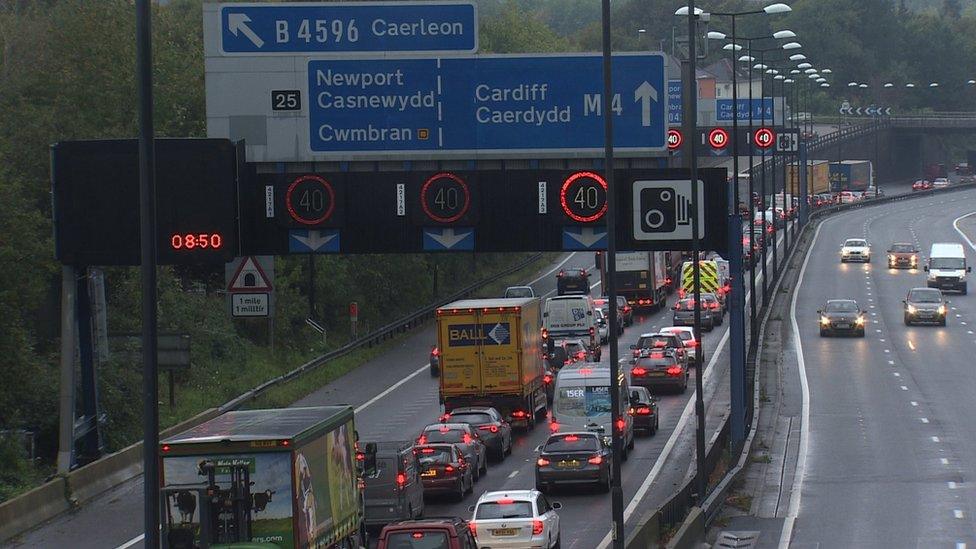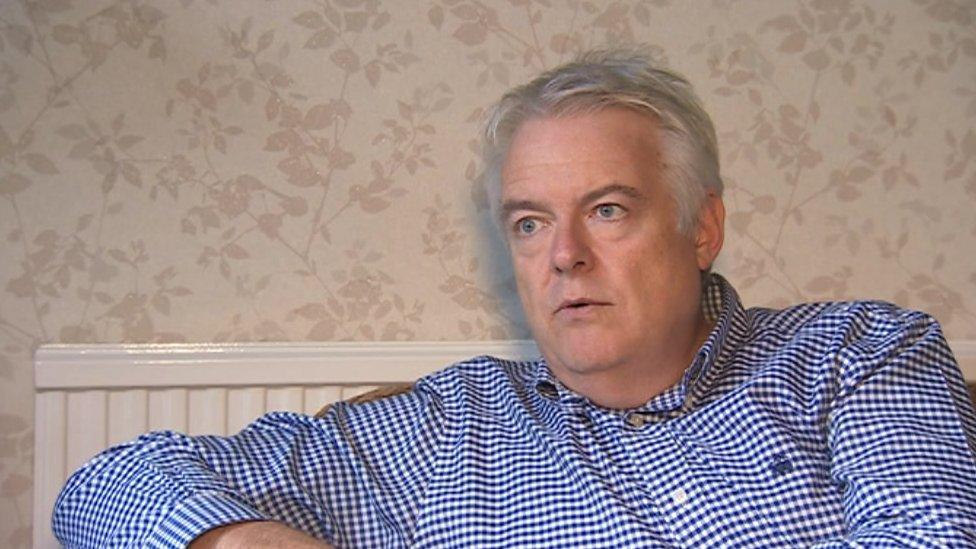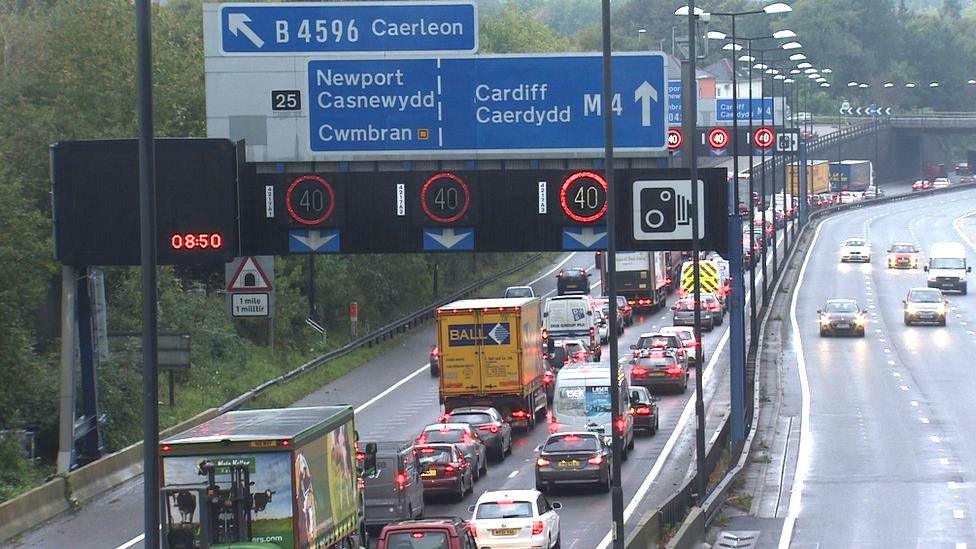M4 relief road: Cost of new route 'was getting out of hand'
- Published

The M4 relief road was proposed as a solution to tackling congestion on the M4 around Newport
Scrapping plans for a £1.6bn M4 relief road was the correct decision, former first minister Carwyn Jones has said.
His successor, Mark Drakeford, axed the project back in June because of its cost and impact on the environment.
Mr Jones had initially been supportive of the scheme to build a 14-mile motorway in a bid to tackle traffic congestion around Newport.
But he said the costs "spiralled" and began to "trouble" him a few months before he stood down in December 2018.
Mr Jones, the Labour AM for Bridgend, said: "I wasn't happy.
"One of the last things I did on the M4 was to go back to my officials and say 'you've got to force the cost down, this is too much, this has got be delivered at a lower price' and it was getting out hand in terms of the cost.
"Let's put it this way, I didn't see the planning inquiry report so I don't know what was in that, but if you asked me in September or October 2018, should it go ahead? Is the cost acceptable and reasonable? I would have said no, it was too much at that stage," he added.
When Mr Jones was still first minister and Welsh Labour leader, the party's manifesto for the 2016 assembly election promised to deliver "an M4 relief road".
A public inquiry in to the six-lane scheme was overseen by planning inspector Bill Wadrup, who said the case for the road had been "compelling".

What was the M4 relief road project?
This video reveals the possible route of the M4 relief road
Originally proposed in 1991 as a solution to congestion at the Brynglas Tunnels
Road would have been six-lanes wide and stretched from Castleton, west of Newport, to Magor east of the city
Scheme would have replaced the Newport stretch of M4, with the existing road downgraded
Plans were brought back on the table after UK government offered Cardiff ministers borrowing powers in 2013

At least £44m was spent by the Welsh Government on the inquiry and other development costs.
But in April this year, Mr Drakeford and ministers decided that, with austerity and Brexit in the background, the uncertainty of the financial position of the Welsh Government meant the project was too expensive.
The decision drew a mixed reaction with Welsh Secretary Alun Cairns calling it a "dark day," while Friends of the Earth said the decision was "great news for Wales and the planet".
Mr Jones admitted that something still needs to be done to ease congestion around Newport and the Brynglas tunnels bottle-neck where there are only four lanes.
He added: "You know saying 'we'll just leave it', that's just not realistic and Mark knows that, he said that.

Carwyn Jones stepped down as first minister in 2018 and was replaced by Mark Drakeford
"We were at the point where it wasn't just money we would have had to borrow that would have paid for the road, but it would actually eaten into other road budgets.
"So we would have seen road schemes across all of Wales not going ahead because of the M4.
"It's a tough decision. I've said this many times before I'm not sure my decision would be any different, to be honest because of the cost."
A commission led by Lord Burns will now look at alternative solutions to the problem of congestion on the M4 in Newport.
Listen to the full interview on BBC Radio Wales' Sunday Supplement programme at 08:00 BST or download the podcast via BBC Sounds.
- Published4 June 2019

- Published4 June 2019
